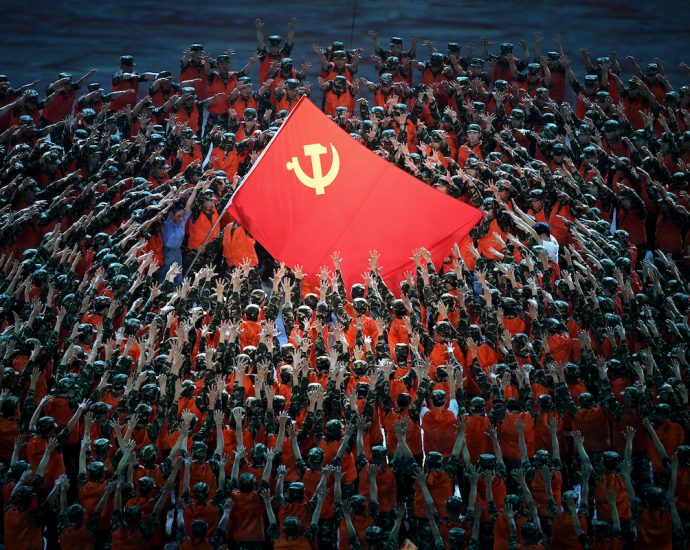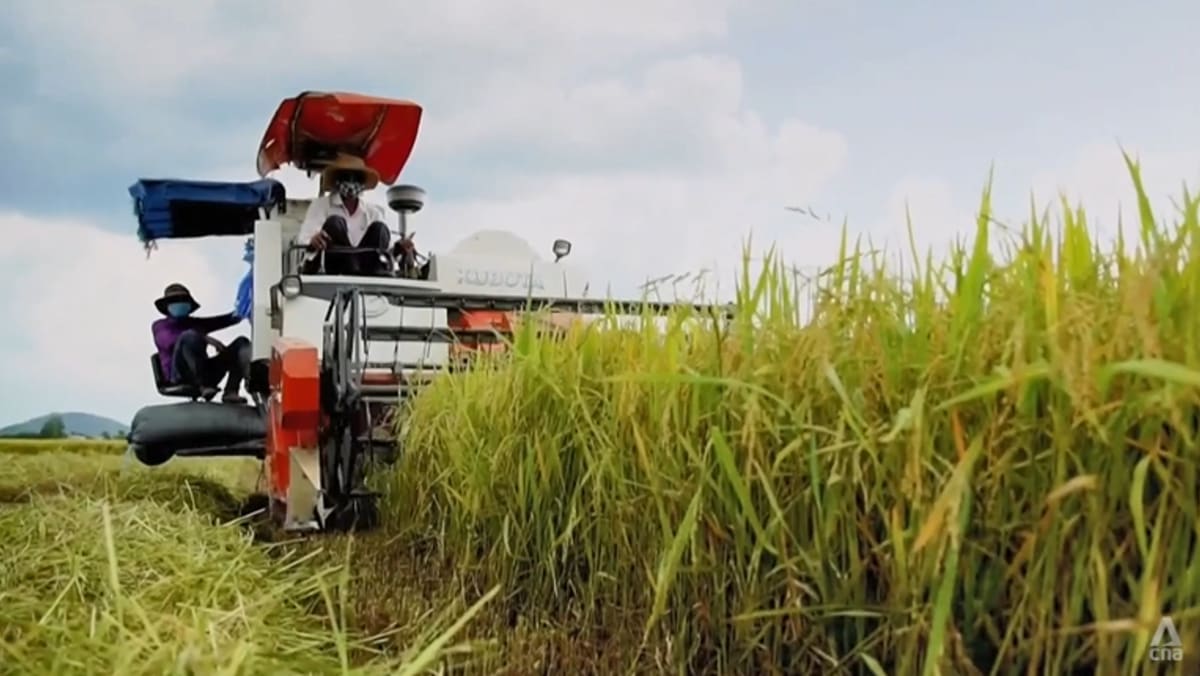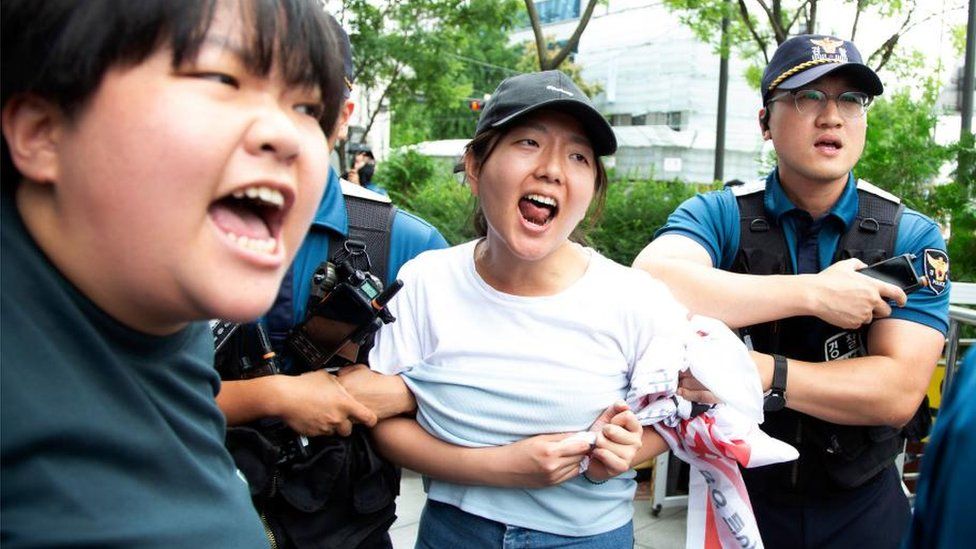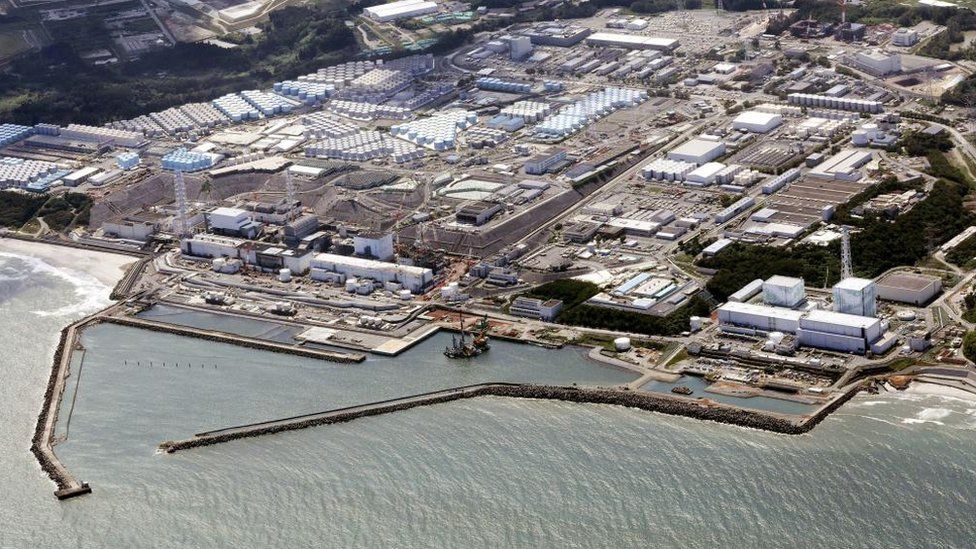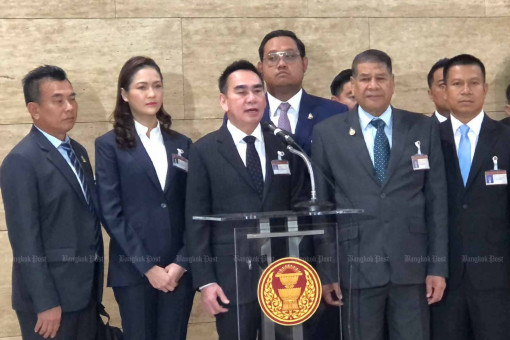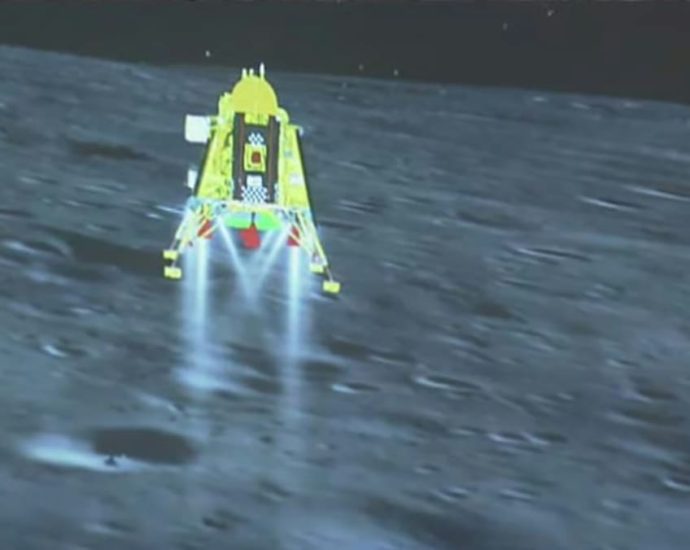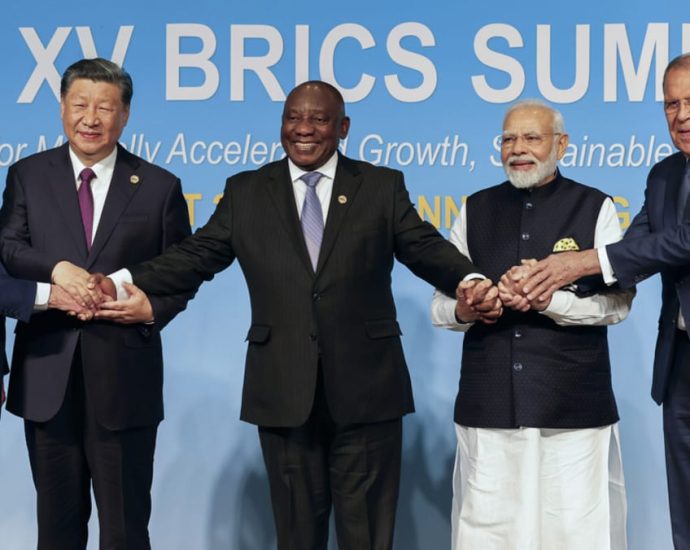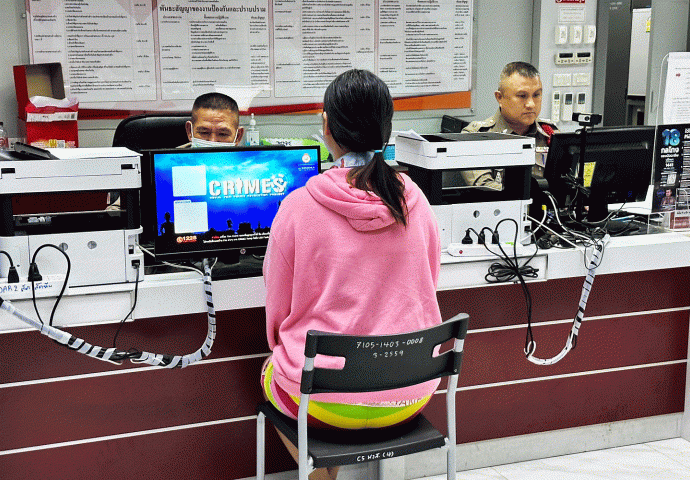Japan’s seafood takes a hit in Fukushima row
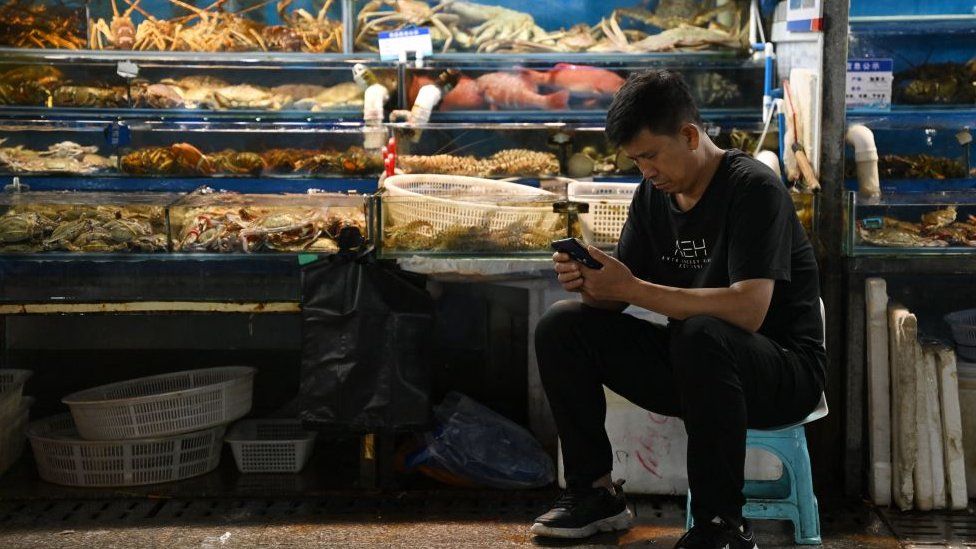 Getty Images
Getty Images“I’ll keep eating Japanese seafood… It’s just that addictive,” says Mr Ho, who is standing outside a Japanese seafood restaurant in Hong Kong.
He is among a number of Hong Kongers who have been flocking to Japanese eateries for their fill of sushi and sashimi in the past few days.
Japanese seafood is very popular in the city, but there seems to have been a renewed urgency to consume it in the days leading up to the release, with many anticipating a total ban in coming days.
On Thursday, Japanese authorities announced at 13:00 local time (05:00 BST) that they had begun pumping the water into the ocean through an underground tunnel. It prompted an immediate outcry from regional neighbours.
Soon after, China’s customs office announced that an existing ban on seafood imports from Fukushima and some prefectures would be immediately extended to cover the whole of Japan to “protect the health of Chinese consumers”.
Many expect Hong Kong to follow suit.
This would be a massive hit to Japan – China and Hong Kong account for nearly half of all Japan’s seafood exports – amounting to $1.1bn (£866m) – every year.
But Japan has been bracing itself.
The government said in 2021 that it will buy marine products to support fishermen as an “emergency step” if the planned discharge has a negative impact on sales, The Japan Times reported.
The report also said authorities were considering setting up a fund that can be “used flexibly to buy seafood from Fukushima and other parts of Japan”.
Whether officials anticipated a total ban is unclear at this point.
This video can not be played
To play this video you need to enable JavaScript in your browser.
The curbs from China come despite experts saying that the release will not make the sea more radioactive than it already is.
It was signed off by the UN’s nuclear watchdog in July, with authorities concluding the impact on people and the environment would be negligible.
Many scientists say the concerns about the effects of treated water on seafood has “no basis in scientific evidence”.
Prof Jim Smith, who teaches environmental science at the University of Portsmouth, says radiation doses to people will be “vanishingly small” if the discharge is carried out as planned.
The exposure would be “more than a thousand times less” than doses we get from natural radiation each year, Prof Smith says.
Mark Foreman, an Associate Professor of Nuclear Chemistry in Sweden, said people who consume a lot of seafood will only be exposed to “low” doses of radiation – in the range of 0.0062 to 0.032 microSv per year.
Humans can safely be exposed to tens of thousands of times more than that – or up to 1,000 microSv of radiation per year.
The discharge on Thursday also reignited protests in South Korea, where police arrested 16 people for trying to break into the Japanese embassy in Seoul.
South Korea has also blocked seafood imports from the Fukushima area.
“The sea is not Japan’s trash bin,” said one of the banners hung by the group of protestors on Thursday.
Another read: “Stop releasing contaminated water at once.”
Additional reporting by Tiffanie Turnbull in Sydney.
Related Topics
-
-
20 hours ago
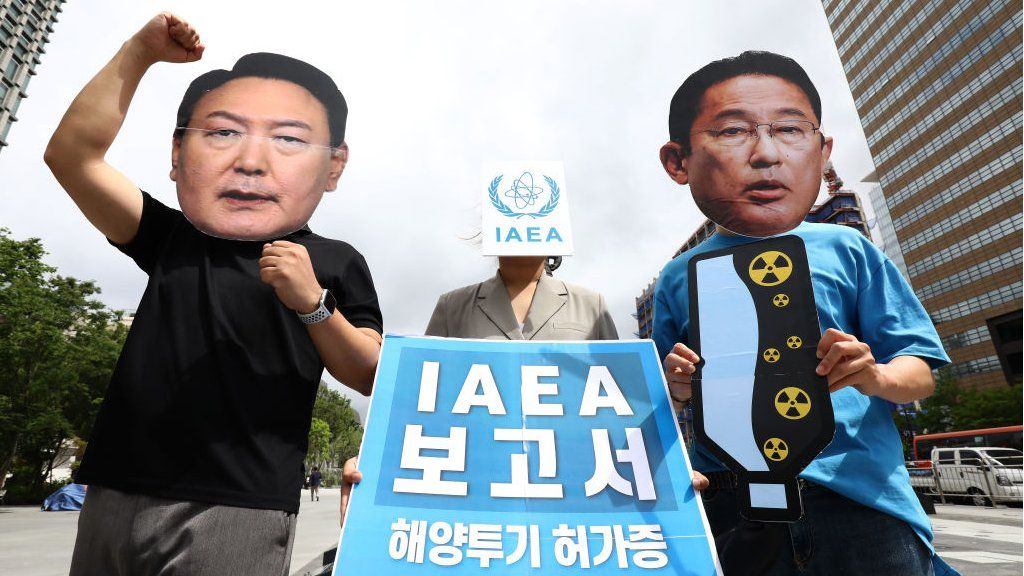
-
-
-
1 day ago
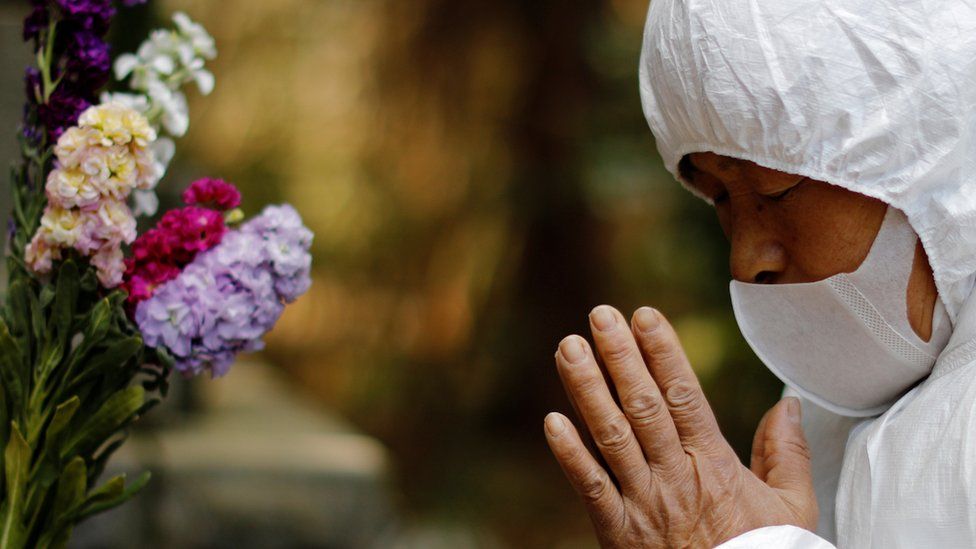
-


